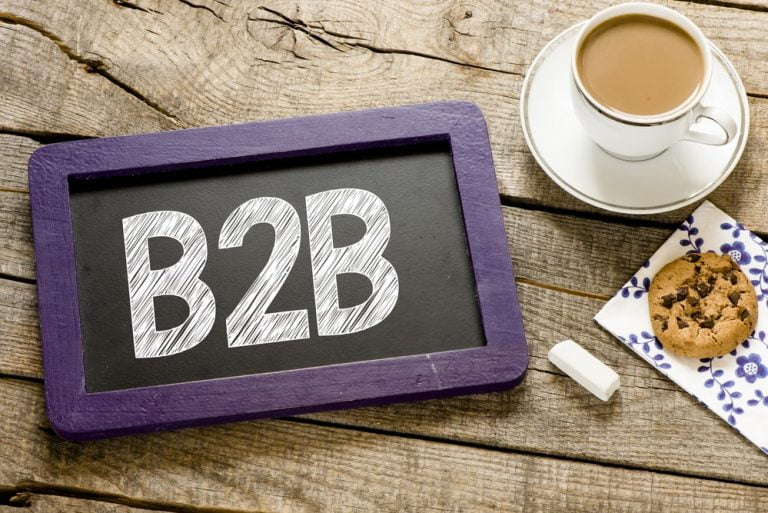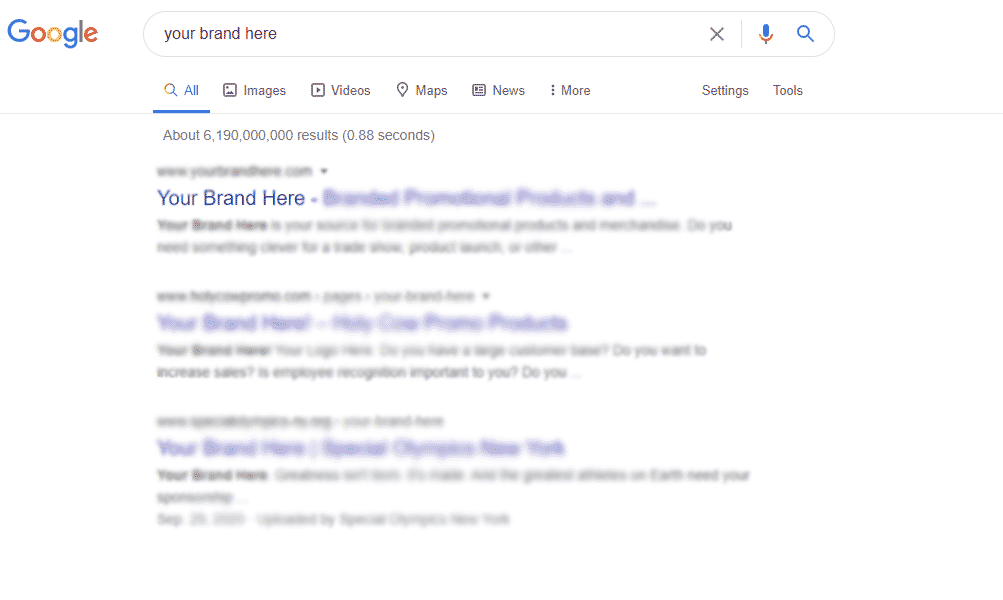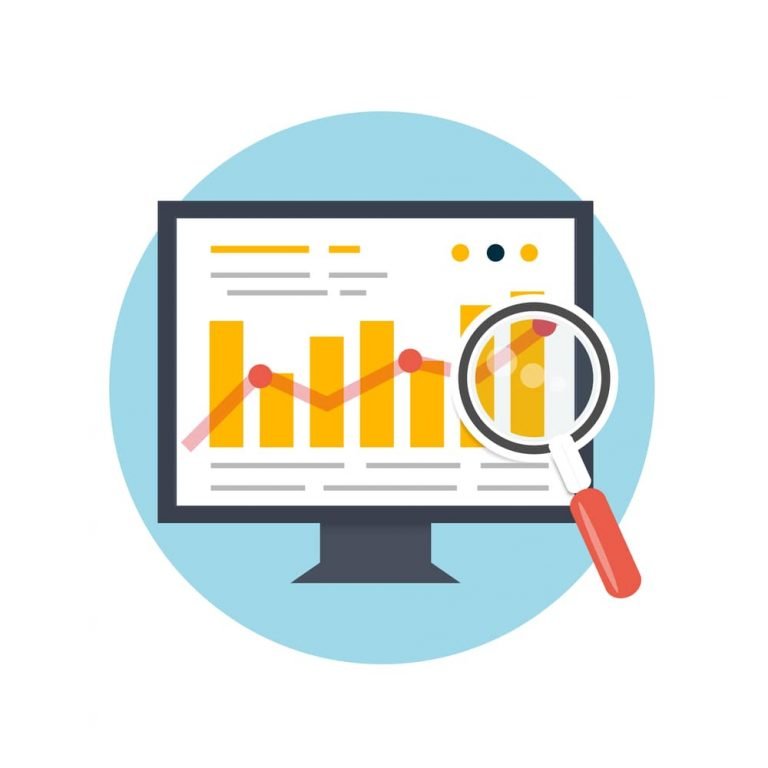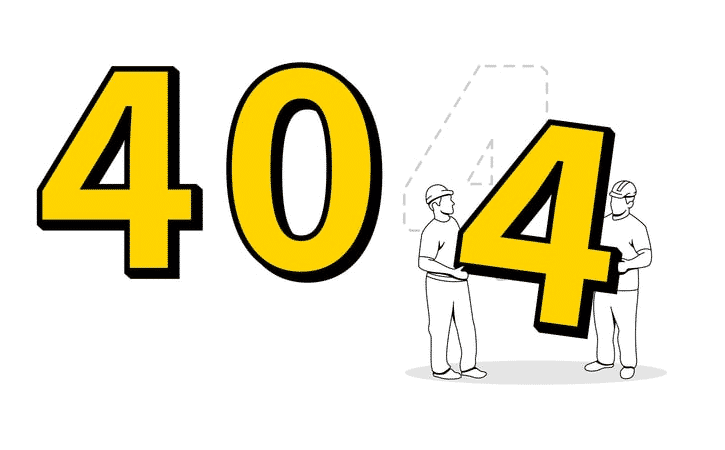Top Rated E-Commerce SEO Services for Your Online Shop
In 2023, global ecommerce sales are slated to hit $5.9 trillion. To put that number into context, that’s more ecommerce sales in 2021 than the yearly GDP of Canada and the UK combined.
That’s a big pie, and if you’re anything like us, you want a healthy piece of it.
First Rank is a team of ecommerce SEO experts. The simplest way to describe what we do is this: we help you connect with prospective customers who are actively looking for your products and services.
In other words, we connect interested buyers with you. We do this by improving your ranking in Google and other search engines – our goal is to get your site to come up first when someone searches for your relevant keywords.
How important are search engines for businesses looking to drive traffic to their website? Very. In July 2020, 81% of respondents told researchers that they searched online for products and services to buy.
Google is the gateway to the multi-trillion dollar ecommerce world. You want to be the company greeting clients at the gate. At First Rank, our goal is to get you there.
What is ecommerce SEO?
Ecommerce SEO is a specific type of search engine optimization (SEO) that’s designed to grow sales for businesses selling products or services online. To get a better understanding of what we mean by all that, let’s take a look at what makes a business an ecommerce business, and at what exactly SEO means.

What is an ecommerce business?
Ecommerce businesses are businesses whose revenue comes from selling products or services online. They differ from traditional local businesses in many ways – a large number of ecommerce businesses have eschewed brick and mortar stores altogether. They are, in effect, digital businesses that get most (if not all) of their clients through digital channels.
This Shopify article reveals another interesting fact about ecommerce businesses – they get a lot of international traffic. In fact, 57% of online shoppers purchase goods from overseas.
The four types of ecommerce store
You could say there are infinite types of ecommerce stores, because every business has its own unique products, features, aesthetics, and goals.
That’s true, and that’s why you need your SEO to be customized to your business. We can, however, take a broader approach, and categorize ecommerce into four types: B2C, B2B, C2B, and C2C. Remember, whether you’re selling products or services, you’re still ecommerce – though the strategies for each will be different.

-
Business to Consumer (B2C)
The model most ecommerce businesses follow. SEO for B2C ecommerce means focusing on customer-friendly content, compelling copy for your content pages, cultivating an active social media following, getting good reviews, and connecting with other websites who are considered authorities in the niches your customers are interested in. -
Business to Business (B2B)
ecommerce usually has a longer conversion time than B2C, but the customers who do convert tend to make higher value purchases. SEO for B2B consists of convincing clients whose focus is ROI that your product or service is worth their money. That means a lot of technical keywords, white papers, and testimonials from other businesses. You might think of our SEO services as a type of B2B ecommerce! -
Consumer to Business (C2B)
Is almost always service-based: leaving a review on Yelp is a type of C2B transaction – whether or not it’s ecommerce is a good question. There are more obvious examples of ecommerce C2B, like Upwork, which connects freelancers to businesses. This type of C2B SEO is interesting because you need to attract both consumers and businesses – the SEO on the pages targeted to one may look very different than on the pages targeted to the other. Affiliate marketing is another form of C2B website, and these sites absolutely need SEO to thrive – their appeal is their content. -
Consumer to Consumer (C2C)
Probably the rarest form of ecommerce because Etsy, eBay, Craigslist, and similarly well-established websites dominate the market. That said, if you’ve got a great C2C idea, let us know – there are a bunch of techniques we can use to help boost you above the competition for keywords relevant to your niche.
Why you need ecommerce SEO
53% of all web traffic comes from organic searches. That means more than half of all visits to any website pass through a search engine.
If you neglect SEO, you’re ignoring more than half of your prospective customers.
Obviously, you want to maximize traffic to your ecommerce site. After all, it’s a numbers game – you may never convert everyone who shows up on your page, but the more people who show up, the more sales you’ll get.
The quality of your leads matters
Every person who shows up on your website is a potential customer. When SEO principles are applied to your site, the influx of traffic coming to your website will be more likely to convert.
There are some pretty interesting reasons for this.
We can target keywords with commercial intent. That means zoning in on the phrases that people search for when they want to buy products, like yours, right away. The higher up you show up in the SERPs for these terms, the better the chances they’ll choose to buy from your business.


Customers who are searching for keywords relevant to your business are interested in what you have to offer – even if they’re only at the awareness phase of the funnel. We know they’re interested in whatever you provide, because if they weren’t, they wouldn’t be searching for terms that generate traffic to your site.
Think about it like this. A beer subscription box ad that airs on cable TV will hit all kinds of audiences: people who love beer, people who hate beer, ex-alcoholics – everyone who happens upon it.
When someone is looking up a phrase like “best craft breweries in the world”, though – that person is definitely interested in beer. That’s exactly the kind of person you want to make aware of your beer subscription service. SEO improves your website’s ranking, and suddenly the first link that our beer-loving friend here sees is one to your website.
Better leads means higher conversion rates
There’s a you-have-to-see-it-to-believe-it SEO statistic from Hubspot: in a survey of 150 businesses, they found that SEO leads had an astonishing 14.6% conversion rate. That’s compared to the 9% conversion rate from referrals and abysmal 2% for outbound leads.
An over 5% increase in conversion versus referrals implies that SEO is significantly better at converting than word-of-mouth.
Things get even crazier. SEO converts at about the same rate as direct traffic – in other words, SEO converts as well as people who are going directly to your website. There is basically no difference between the quality of leads you get from search engines (where users might be unaware of your business initially) versus the quality of leads who show up to your website already knowing who you are
That’s powerful stuff. SEO isn’t a sales funnel – it’s a sales waterslide.
More reach for less money
We’re not going to pretend that traditional advertising doesn’t have its advantages. If you air a 30 second ad during 60 Minutes, millions of people are going to see it.
It will also cost you over $100,000.
While SEO doesn’t hit that quantity of people, it does bring in leads of higher quality at a lower price. What’s more, that 60 Minutes ad is only going to air once – SEO sticks around, bringing in new leads every day.
And that’s not all.
Remember, ecommerce is an international game – more than half the population has used ecommerce to buy things from overseas. People in Belgium might not be interested in 60 Minutes, but if you’re selling custom-built bicycles and they’re into cycling, they’ll find your company through Google.
That is, if you have great SEO.
Increased brand awareness
Back in the day, when you were looking for products or services, you’d open up a directory like the Yellow Pages. Today, Google is that directory, and instead of giving local listings, it draws upon the most relevant listings from around the world.
Want to create international brand awareness? SEO is a great place to start.
We’ll optimize your content pages so searchers who are looking to buy will find you first. We’ll also create content for you so that people who were otherwise totally unaware of your existence learn about you. Better still, they’ll learn about you through content that’s enabling you to answer their questions or give them good advice – that creates a positive, first experience.

More satisfying customer journeys
This leads to your customers having a much more pleasant journey – a sales waterfall is a lot more thrilling than a funnel, after all.
Think about it. Back in the day, the journey was something like “I saw a cute ad on TV, then I saw their product when I needed it”. Today, the journey is more like “I needed help with a problem, and they were there for me”.
For journeys that start with the customer completely unaware of your product, SEO means your relationship will begin with an act of generosity: you answering a question they asked a search engine.
And hey, if you’ve got products or services that so happen to solve the problem they have, more power to you.
A defence against your competition
Your competitors are doing SEO.
It’s pretty much table stakes for ecommerce at this point.
That means if you’re not doing SEO, your competitors are going to show up before you on SERPs.
28.5% of all search traffic goes to the first result on the first page. Only about 12% of people even make it to the second page. In other words, every link on the second page combined, gets less than half the traffic of the first search result.
Potential customers not finding you is bad enough, but when they find your competitor first and ignore you to buy from them, you’ve got a problem.
SEO lets you play offence and defence. In traditional advertising, your ad does nothing to stop your prospective customers from looking at your competitor’s ad. With SEO, a huge number of people stop scrolling after the first link, and almost everyone stops after the first page.
You’ll be drawing in traffic while actively stonewalling the competition.
Why choose First Rank
Now you know why SEO is essential to ecommerce. Let me answer the next question that might be on your mind: you know you want an SEO specialist to take your ecommerce business to the next level, but why choose us?
We only take the best clients
We believe in mutually beneficial relationships. We only take on clients when we’re confident we can blow their competition out of the water, and provide them with a minimum 100% ROI. More often, though, our clients see higher ROIs than that – we’re talking 200-500%.
And that’s not counting for the more intangible benefits, like improved customer experience and actively pushing back against your competition.
Like any good relationship, your work with us won’t be a one-sided affair. We choose our clients as much as they choose us, and if we choose to work together, I can guarantee you it’s going to mean good things for both of our businesses.
We do everything in-house
There are a ton of SEO specialists who outsource pretty much everything they do.
We get it. It’s less expensive to do it that way, and lowering your costs is a good way of improving your profit margin.
It’s not, however, a good way to ensure you’re delivering high-quality services to your clients.
That’s why we’ve opted to do everything in-house. From our technical SEO specialists to our team of dedicated writers, everyone who will be doing work for your ecommerce business is a member of First Rank. That means we can guarantee you’re getting only the best, every step of the way.

We customize our services to your needs
On some sites, you’ll see a simple pricing matrix for their SEO services, as though there are one-size-fits-all solutions in the SEO world.
There aren’t.
Every site is going to need something a little different to give it the edge over its competitors, and that’s why we customize all of our services to each unique client. Use our site audit tool so we can analyze your website – we’ll get in touch with you to discuss what custom solutions we can implement to get you more sales and blow your competition out of the water.
We do more than just SEO
Our focus is SEO because it’s the most cost-effective way to boost sales for your ecommerce business. That said, if people are showing up from Google but aren’t converting, it’s not good enough.
That’s why our services branch into conversion optimization, reputation management, and more. We’ll work with you to ensure that your sales waterslide is as efficient and impactful as possible.


You’ll get real, data-driven results
It can be hard to understand exactly how search engines drive sales and improve traffic. We make it easy, providing you with real, trackable results from our analytics software. You’ll know exactly how well your site is doing for keywords, and how those clicks are converting to sales.
How we do it
To an outsider, SEO can seem pretty mysterious. There’s a good reason for that – search engine algorithms are always changing, so the goalposts are constantly moving.
You’ve got enough on your hands running your ecommerce business – you don’t want to worry about what the engineers at Google are cooking up.
Exactly what we’ll do differs from site to site and update to update, but we want to clear those murky waters for you. Let’s take a look at some of the unchanging SEO principles we focus on for ecommerce businesses:
Keyword research
This is step 0 for any SEO plan – ecommerce or otherwise. For you to rank for relevant keywords, we have to know what those keywords are!
What are people who will be interested in your products or services punching into Google? That’s what we want to find out.
There are a lot of factors that go into keyword research, but we can group them into three broad categories: search volume, keyword relevance, and competitiveness.
Search volume
It’s simple enough – how many people look up a given term in a given period of time? Search volume can change pretty drastically from week to week – think about how quickly news stories and memes come and go – so it’s important to find keywords that have a consistently high search volume.
Keyword relevance
It’s a bit more complex than it might seem at first. Imagine you’re running a C2C ecommerce site for people who collect coins. Obviously, you don’t want to be included in search results for “burger”.
You might think you’d want to show up for a word like “currency”, but that’s usually not the case. With a word like that, it’s almost impossible to know a user’s intent. Do they want to know about rare currencies? Currency exchange rates? The definition of currency? A brief history of currency?
Generic searches like this are usually met with Wikipedia pages, because a broad, highly general approach to the topic is likely to include something that the user will find useful.
Soon, Google’s going to be rolling out an update that tries to diversify front page results for searches like these. We’ll track how that affects generic keywords and site rankings.
The point here is twofold: we focus on keyword relevance to make sure we target high converting keywords, and exactly what converts well can change based on shifts to Google’s algorithm. Those are two reasons why SEO is really important for ecommerce companies to have.
Competitiveness
It’s one of the most important factors – one of the reasons we wouldn’t necessarily try to rank for “currency” right away is that it’s a hard keyword to rank for.
Competitiveness doesn’t mean you should shy away from a particular keyword, but it’s often a good idea to save very competitive keywords for last. Instead, we’ll focus on what are known as long-tail keywords. These are phrases that usually reveal their searcher’s intent – they’re also under targeted by your competition, and often have high conversion rates.
“What are the rarest coins” is a good example of a long-tail our C2C site might go after. Why?
- It gets a decent number of searches each month
- It’s clearly relevant to our business
- There’s not a lot of competition for the term
Once we have our keywords, there are a number of ways we can optimize your site to rank well for those keywords.
Product page optimization
Ecommerce SEO works pretty differently from other types of SEO – your product pages are going to be some of the most important points for optimization.
Every ecommerce business is different. Some B2C businesses only offer two or three products, while B2B businesses will often have thousands of different products in their catalogue.
Our optimization efforts will focus on improving your product descriptions, creating a relevant FAQ to capture long-tail keywords, image optimization, and more.
All of that can sound a bit technical and dry, but don’t worry – we balance incredible copy with SEO optimizations. Basically, to your customers it will just look like an awesome product description with a helpful FAQ, and to search engines, it will look like you’re the authority on what you do.
That’s the best of both worlds.
Off-page SEO
Backlinks (links from websites that aren’t your own) are the most important ranking factor.
You want your ecommerce site to boom? You’re going to need backlinks. That’s where off-page SEO comes in.
Getting off-page SEO for ecommerce sites can be a bit trickier than it is for local businesses – we’ll get into the reasons why in the content creation part – but it’s just as essential.
To get links to your product pages, we’ll coordinate with you to develop relationships with influencers, reviewers, and other high authority websites. We’ll get links through those relationships. This might be through offering a product to a reviewer for free in exchange for a review, or by sponsoring an event.
We may also reach out to do guest posting on another website, linking to your product pages through that guest post. Another great strategy is to create compelling content that people want to link to right there on the product page – imagine if the Will it Blend series took place on Blendtec blenders product page. That would be a powerful motivator for links.
In other words, while getting these links can be tricky, with our team at your side, we’ll get it done.
Architecture optimization
Don’t worry, we’re not going to show up to add spires to your home office.
We’re talking about website architecture – basically, how all of your pages link to one another. We favour a shallow architecture, so that every page on your site can be reached within just a few clicks. We’ll also ensure a deep structure of links from your non-product pages to your product pages.
All of this helps Google’s crawler bots find your most relevant pages quickly, and that can dramatically improve your rank.
Improved navigation
Your site needs to be easy to navigate for both search engines and customers. We make it happen.
For large sites, we highly recommend breadcrumb navigation – it can help your customers navigate your website more easily, and it can improve your results in search engines. For some pages, Google will include breadcrumbs as part of a search result, meaning users can more easily access pages deeper in your website.
We’ll also make sure all of your URLs are easily readable, so users immediately know what the page a link points to is all about.
Technical optimization
There’s a lot that goes into technical optimization: page redirects, canonicalization, minifying script, keeping within the Core Web Vitals guidelines, submitting XML sitemaps, and a whole lot more.
What does all that mean for you? It means the pages on your site will load faster. It means your users will be met with less 404s or pointless redirects. It means the bots that make search engines run will be able to index your pages more quickly, and it means a boost to your ranking.
Technical optimization can seem obscure or far off, but trust us – it’s incredibly important, and you WILL see the impact.

Content optimization
We mentioned that off-page SEO for ecommerce sites is tricky. The reason for that is simple: people don’t generally like to link to product pages, because product pages don’t have very engaging content.
The solutions we proposed for that problem are very good, but it’s helpful to have other content on your site in order to get links. Search engines look at your site holistically, so the better any given page ranks, the more likely it is that the site will rank well as a whole.
That means we’re going to create some absolutely mind-blowing content for you. Usually, this content will go into a blog or resource page on your site. We’ll then encourage other pages to link to your content pages through our rich network of relationships with high authority sites.
Content page optimization involves writing premium content, optimizing it for SEO with the use of the right headings, meta tags, and more. Of course, all of the content we create will be optimized for the keywords we so carefully researched.
With some of the best content on the Web in your niche, your site is bound to see more traffic.
Reputation management
Bad reviews can really hurt your SEO – no reviews can be even worse. And, let’s be honest – even if SEO weren’t a factor, you know how much bad reviews can hurt. I don’t buy from 3-star or less vendors, and I’m willing to wager you don’t either.
3-stars is average. You have to do much better than average.
We’re sure you have exceptional products – if you’re partnered with us, it’s because we believe in your business. We’ll get you good reviews through our reputation management system. It automatically encourages clients to leave reviews – good reviews are posted to Google, while bad reviews are sent to your team so you can deal with them internally.
FAQ
The cost of ecommerce SEO varies substantially from client to client. That said, the costs are often substantially lower than those of traditional marketing. Moreover, SEO can cost less than PPC marketing plans – though generally, it’s a good idea to tie the two together.
Each business has its own needs, so we build a custom plan for each of our clients. As such, pricing will vary.
There’s no one answer to this question – like pricing, it depends on what you want to do. One thing you should know is that SEO is an ongoing process – in that sense, SEO takes as long as you keep it around for.
Once we get that top rank, we need to keep putting effort in so you can keep it.
Now, if you’re wondering how long it’s going to take to see results, it’s typically a number of weeks or months. You might see a shift on long-tail keywords pretty quickly, but it often takes many months before you see a shift on more generic keywords.
This question has a pretty complex answer – it’s deeper than it seems at first – so we created a guide to why ecommerce SEO takes as long as it does. Check it out.
All of them.
That doesn’t mean that any online store can do ecommerce SEO with us – we don’t do get-rich-quick schemes, and we don’t do anything indecent or immoral.
Otherwise, if you’re selling something, be it a product or a service, you use the Internet as a primary vehicle for selling, and you want to improve your rank, get in touch with us. If we think it’s a good fit, we can do business together.
EO absolutely works with Shopify. It works so well with Shopify, in fact, that they have an entire directory dedicated to improving SEO with Shopify.
We can absolutely help your Shopify store rank better. Exactly how we’ll do that depends on the layout of your site – we might recommend expanding past just having product pages and creating dedicated content, for example.
Shopify is the second biggest ecommerce platform in the world – behind only Amazon. If SEO didn’t work for Shopify stores, we’d be in a lot of trouble.
Have any questions that our FAQ or article didn’t answer? Get in touch with us! We love SEO, and we love helping ecommerce businesses improve their sales. We’d love to chat.


